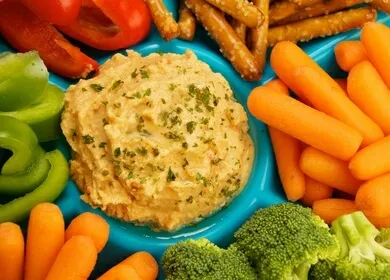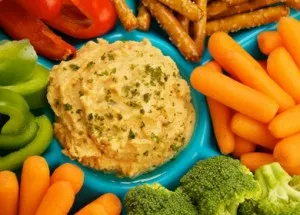
- Share on Facebook167
- Share on Pinterest
- Share on Twitter
Have you ever polished off a big bowl of fruit only to be hungry within the hour? This can be frustrating, especially if you are trying to lose weight. When the hunger pangs strike you want something sweet which can sabotage your entire diet.
If fruit is so healthy, why does this happen? It happens because fruit is a carbohydrate and all carbohydrates impact blood sugar. One way to prevent this from happening is to consider the power of food combinations.
Don’t Believe the Myth
There is a myth about food combinations circulating. It goes like this, you should not combine carbohydrates and proteins together because it interferes with the digestion of each. According to the myth, the carbohydrates are digested first which leaves the protein to rot in your digestive system. This jams up your colon and can lead to serious disease.
No Supporting Evidence
We looked as hard as we could and were unable to find any solid empirical evidence stating that combining carbs and proteins is unhealthy. In fact, what we found was that there is solid evidence to support combining healthy carbohydrates with protein is entirely beneficial and makes perfect sense when one looks at it from a physiological perspective.
Understanding the Glycemic Index
Carbohydrates are found in starchy foods like grains, potatoes and rice. They are also found in dairy fruits and vegetables. The body converts carbohydrates to sugars which are used for energy. The brain and nervous system, which run entirely on glucose, are supplied first.
The impact that carbohydrates have on blood sugar is measured on a scale called the glycemic index (GI). When carbohydrates break down quickly, they release a flood of glucose into the bloodstream.
These carbohydrates have a high GI rating. On the other hand, carbohydrates that have a low GI rating take longer to digest and release glucose slowly. Glucose is used as the reference food on the scale and has a value of 100. Compared to this value, a bagel has a value of 95 and chickpeas 33.
Obviously, if you are going to consume carbohydrates, it is best to stick to those that do not spike your blood sugar. When blood sugar spikes it is like a wild rollercoaster ride. The sugar goes up, up, up and drops down, down, down just as fast. Choosing carbs with a lower glycemic index helps to moderate this spike.
Don’t Eat Carbs Alone
 There is another way to slow the impact that carbs have on the blood, that is, to pair them with some protein. Here is one place where combining carbs and proteins makes great sense. Eating carbs alone, especially those with a high GI value, can lead to overeating and weight gain. Eating carbohydrates with some protein slows the digestive process, and the sugars take a longer time to seep into the bloodstream.
There is another way to slow the impact that carbs have on the blood, that is, to pair them with some protein. Here is one place where combining carbs and proteins makes great sense. Eating carbs alone, especially those with a high GI value, can lead to overeating and weight gain. Eating carbohydrates with some protein slows the digestive process, and the sugars take a longer time to seep into the bloodstream.
This is more like a leisurely stroll up a gradual incline than a rollercoaster. Fat works much the same way. In fact, putting healthy carbs, fats and proteins together is the best way to control sugar metabolism and can keep you from packing on extra pounds.
Snack Ideas
Try some of these tasty balanced snacks the next time you are hungry. Obviously, the less processed food you eat, the better. If your body has to work harder to digest the food, your blood sugar will rise steadily and you will feel full without cravings a few hours after eating.
- Organic apple with organic peanut butter
- Rice, beans and avocado
- Banana and raw nuts
- Hummus and vegetables
- Hard boiled egg and an orange
- Cottage cheese, flax seeds and berries
-The Alternative Daily
- Share on Facebook167
- Share on Pinterest
- Share on Twitter

